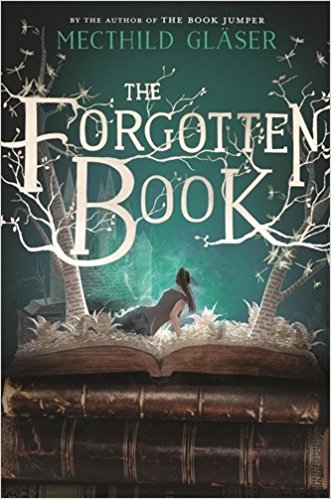 THE FORGOTTEN BOOK, by Mechthild Gläser, Feiwel & Friends, Jan. 2, 2018, Hardcover, $17.99 (young adult)
THE FORGOTTEN BOOK, by Mechthild Gläser, Feiwel & Friends, Jan. 2, 2018, Hardcover, $17.99 (young adult)
It’s easy to tell some of the books that influenced author Mechthild Gläser. One of her main characters is named Darcy de Winter after all. So it should come as no surprise that The Forgotten Book channels both Jane Austen’s Pride and Prejudice and Daphne du Maurier’s Rebecca.
This school year is going to be different for Emma. It’s going to be perfect. She’s well on her way to becoming head girl at her prestigious boarding school, good things appear to be on the horizon with her long-time crush, and her plans for a secret society are playing out just as planned.
Darcy de Winter could care less about Emma’s plans. His family pretty much owns the castle in which the school is housed and he’s not keen on Emma using the abandoned west wing library for watching TV and gossiping. He promptly kicks Emma and her friends out before they even have a chance to really get started.
What Darcy doesn’t know, however, is that before he arrived, Emma found a mysterious book in the library — a book that seems to have powers. Emma hides the book in her room, and while reading it, discovers that anything written in the book comes true.
Emma takes the book on a few practice runs, and it seems harmless enough, but as her wishes become more complicated, so do the consequences. As events unfold, it becomes clear that someone else knows about the book, and they will stop at nothing to get it from her.
The Forgotten Book features three main characters — Emma, Darcy and the book itself.
If you’ve read Pride and Prejudice, then you can pretty much figure out The Forgotten Book’s version of Darcy. He’s cold and aloof, complicated, privileged, and completely devoted to those he cares about. (Maxim de Winter in Rebecca is much the same way.)
Emma, on the other hand, comes from more modest beginnings. Her father is the headmaster of the school and she gets on well with the “scholarship” kids. Emma starts out a little one note — searching for the popularity and acclaim others have. As her character develops, though, you realize she has the strength of a Lizzie Bennet, or perhaps Emma Woodhouse.
The book — or chronicle — as Emma calls it is as varied as the authors who’ve written in it. It ebbs and flows with their love, jealousy and grief.
Surrounding all this is a Rebecca-esque Gothic feel that adds a delicious weight to the mystery of The Forgotten Book.
While Gläser may pay homage to the above-mentioned books, The Forgotten Book does feel very much like it’s own work. It’s a moody, sometimes dark read that’s compelling in its own right.
